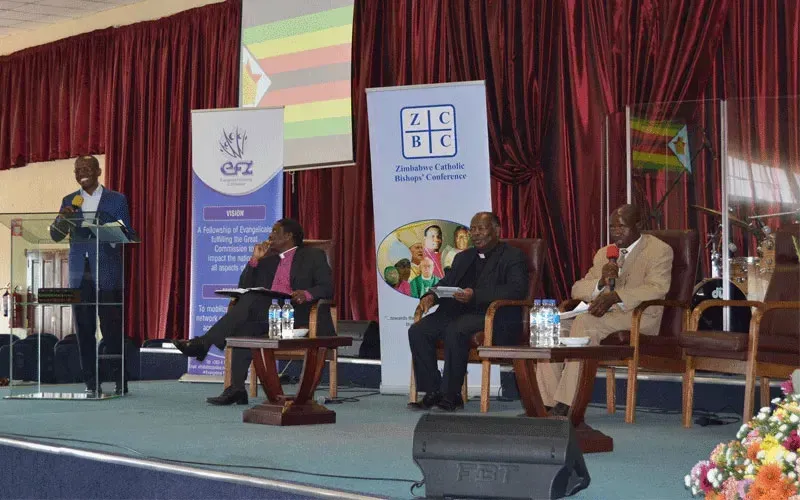They added, “We also understand that you and your team will collect information and hold a series of meetings with Government authorities, civil society organizations, private sector and opposition political parties.”
The Christian leaders provide the background of the sanctions imposed on the country close to two decades ago saying, “The USA enforced sanctions on Zimbabwe through the Zimbabwe Democracy and Economic Recovery Act (ZIDERA) of 2001, Executive Orders (EOs) that are implemented through the Office of Foreign Assets Control (OFAC) since 2003 and exclusion of Zimbabwe from the African Growth and Opportunity Act (AGOA) of 2000.”
“The European Union (EU) sanctions on Zimbabwe, officially referred to as restrictive measures, were imposed in 2002 by Common Position 2002/145/CFSP,” ZHOCD members add.
The two sets of sanctions were imposed, the faith-based leaders tell Ms. Douhan, “against the background of Zimbabwe’s economic mismanagement, undemocratic practices, human rights violations and political repression.”
According to the Christian leaders, the imposed sanctions “have not achieved their intended purpose … are devoid of a broader national settlement framework, and remain elitist and exclude the participation of citizens.”
“Any assessment of effects of these sanctions will show that they have not produced the intended results. Rather these sanctions have been used by some to justify government’s failure to provide services and national development,” ZHOCD members say in their statement dated October 22.
The sanctions, the Christian leaders further say, have “created Zimbabwe as a negative investment environment in a way negatively affecting ordinary citizens and not those targeted.”
They decry the fact that “those who have imposed sanctions on Zimbabwe have closed any meaningful communication doors with the government of Zimbabwe so that they have not been able to influence other aspects of democratic development.”
The Southern African nation “is confronted by many complex and interrelated issues that cannot be addressed in isolation to each other,” the Christian leaders note, making reference to their National Settlement proposal.
In this proposal, ZHOCD members say they have suggested that the humanitarian challenges the country is facing, which have been made worse by COVID-19, be addressed; that the 2013 constitution is implemented “by making sure the laws are properly aligned and key institutions are reformed.”








